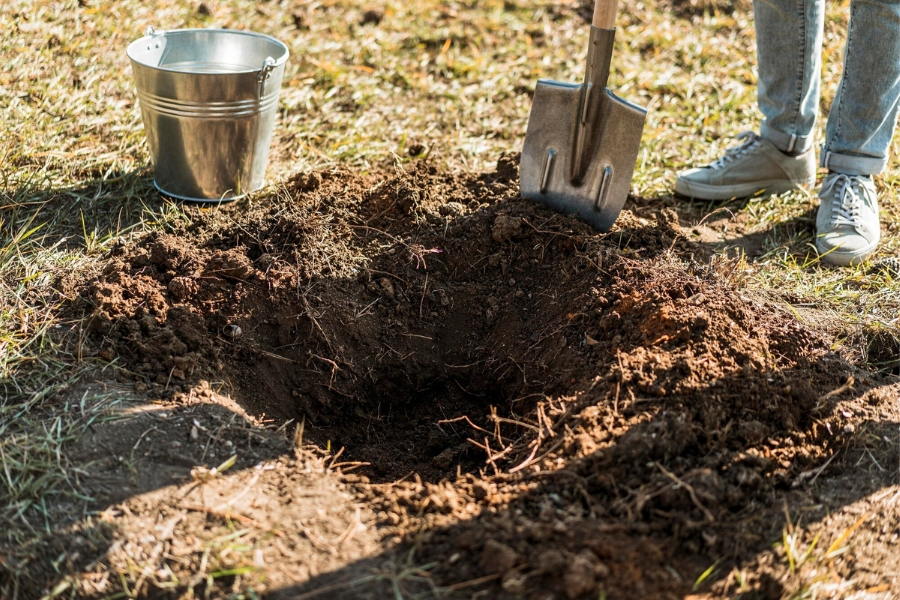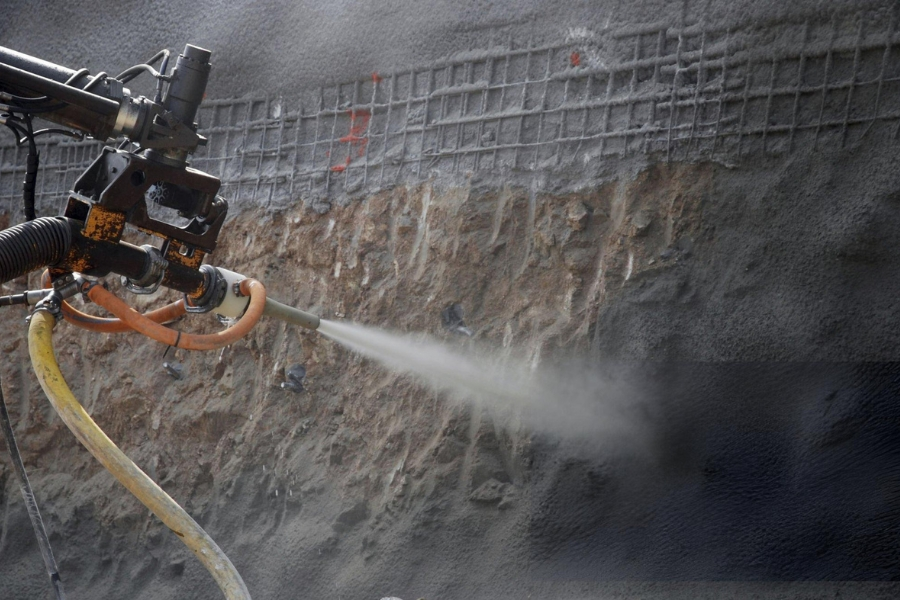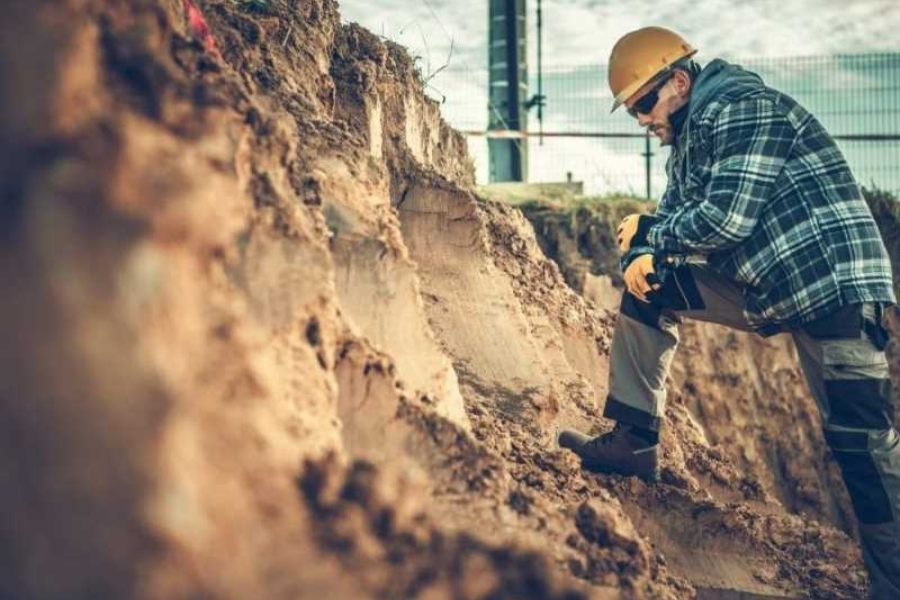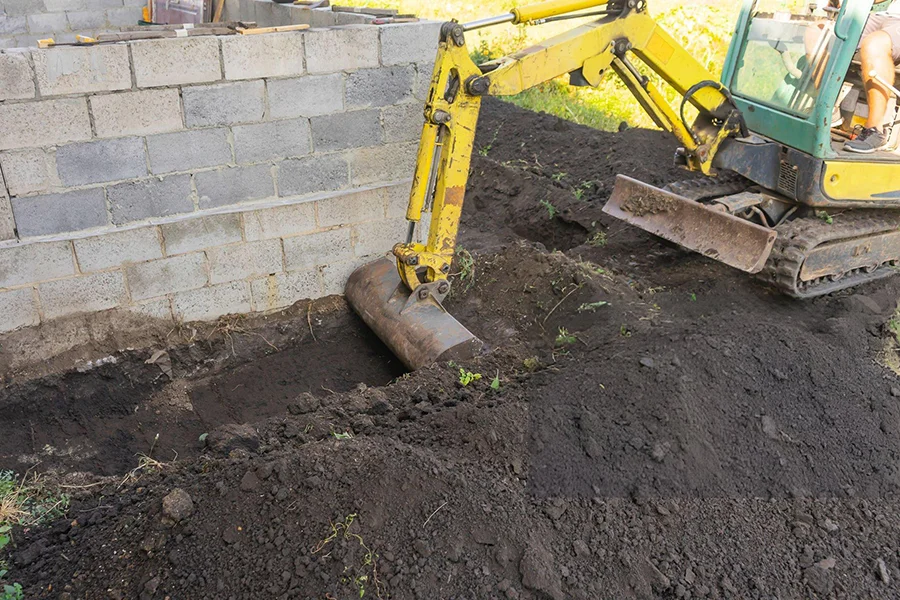Soil Stabilization in El Dorado, AR
Making Our Clients Satisfied!
- Free Estimates
- Lifetime Warranty
- Special Discounts
What Your Neighbors Are Saying About Us
GET IN TOUCH
What is Soil Stabilization?
Soil Stabilization is the process of improving the load-bearing capacity and stability of soil to support a foundation. This method is often used to address issues such as soil erosion, expansive clay, and poor compaction.
- Techniques involve the use of additives like lime, cement, or polymers to reinforce the soil.
- Common applications include foundation stabilization, road construction, and erosion control.
Our Services
- Concrete Slab Foundation Repair
- Pier and Beam or Block and Base Foundation Repair
- Basement Wall Repair
- House Leveling
- Retaining Wall Repair
- Seawall Repair
- Sinkhole Remediation
- Polyurethane Foam Injection
- Commercial Foundation Repair
- Soil Stabilization
- Void Filling
- Pressed Steel Pilings
- Steel Push Pier Installation
- Slab Pier Installation
- Injection Pier Installation
- Helical Pier Installation
- Pre-Construction Pier Installation
- Garage Lintel Repair

Signs You Need Soil Stabilization
Detecting early signs of soil instability can save you from extensive damage. Look for these indicators:
- Cracks in Foundations or Walls: Caused by shifting or settling soil.
- Uneven or Sagging Floors: A result of uneven soil support.
- Pooling Water Around the Foundation: Indicates poor drainage and soil erosion.
- Gaps Between the Foundation and Soil: Evidence of erosion or shrinkage.
- Repeated Foundation Repairs: Suggests ongoing soil-related issues.

Common Causes of Unstable Soil
Several factors can lead to unstable soil conditions, including:
- Expansive Clay: Expands and contracts with moisture changes, causing soil movement.
- Erosion: Water runoff washes away soil, creating voids beneath the foundation.
- Poor Compaction: Soil that hasn’t been properly compacted during construction.
- Drainage Issues: Excess water saturates the soil, weakening its stability.
- Tree Roots: Roots absorbing moisture can cause soil to shrink, leading to instability.

How Soil Stabilization Works
Our Soil Stabilization process is tailored to address the specific issues affecting your property:
- Inspection and Analysis
- A thorough assessment of soil conditions using advanced testing methods.
- Identification of the root causes of instability, such as erosion or poor compaction.
- Customized Stabilization Plan
- A tailored approach using one or more of the following techniques:
- Lime Stabilization: Adding lime to clay soils to reduce plasticity and improve strength.
- Cement Stabilization: Mixing cement with soil to create a solid, stable base.
- Polymer Injection: Injecting polymers to fill voids and stabilize loose soil.
- Grouting: Filling gaps or voids beneath the foundation with a cement or polyurethane mixture.
- A tailored approach using one or more of the following techniques:
- Implementation of Stabilization Techniques
- Using specialized equipment to apply and compact stabilization materials.
- Ensuring even distribution and proper application for long-term effectiveness.
- Post-Stabilization Testing and Maintenance
- Verifying soil stability with load and compaction tests.
- Providing recommendations for ongoing maintenance to preserve soil integrity.

Benefits of Soil Stabilization
Investing in Soil Stabilization offers numerous advantages for property owners:
- Enhanced Foundation Stability: Reinforced soil supports the structure and prevents settling.
- Improved Drainage: Stabilized soil reduces water retention and erosion.
- Cost Savings: Prevents the need for frequent foundation repairs.
- Increased Property Value: A stable foundation enhances your property’s market value.
- Eco-Friendly Solutions: Many stabilization techniques use sustainable materials.
FAQs About Soil Stabilization
Q: How long does Soil Stabilization take?
A: Most projects are completed within 1-3 days, depending on the size and complexity of the area.
Q: Can Soil Stabilization be used for all types of foundations?
A: Yes, our techniques are effective for residential, commercial, and infrastructure applications.
Q: What materials are used in Soil Stabilization?
A: Common materials include lime, cement, polymers, and grouting mixtures.
Q: Is Soil Stabilization environmentally friendly?
A: Yes, many methods use sustainable and non-toxic materials that are safe for the environment.
Looking for Soil Stabilization Near Me?
If you’re searching for “Soil Stabilization near me,” trust our experienced team to protect your property. Call us today at 870-568-8009 for a free inspection and estimate. Let us restore stability to your foundation with our expert Soil Stabilization services!
